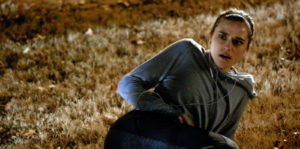
I’ve noticed I tend to assign the moniker of Hallmark and Lifetime to issues-based films, but really it’s a unique style of storytelling where the star is the issue over the characters and narrative. When it works, it shines a light on an important issue as a way to help those who are dealing specifically with the subject matter. Josh Brandon’s important film, A Thousand Little Cuts, takes on the subject of trauma and abuse.
The film opens with a fast twenty seconds as protagonist Anne (Rebecca Liddiard) is shown jogging home and is subsequently attacked. In a snap, Anne is in the hospital with a sprained ankle and talking to psychiatrist Monica (Marina Sirtis) about the events leading up to the sprained ankle. Anne’s on edge as she doesn’t understand why she cannot go home for a minor injury and is equally confused as to why she’s talking to Monica about her personal life.
The psychiatrist guides Anne through her life as a copy editor for a corrupt pharmaceutical company. The conversation then moves to her abusive boyfriend and ultimately to the night’s events in question. Meanwhile, Anne doesn’t know that Monica was sent in to uncover the truth of said evening and is under pressure by Detective Mike Olson (Colin Ferguson) to get her account of the incident right now!
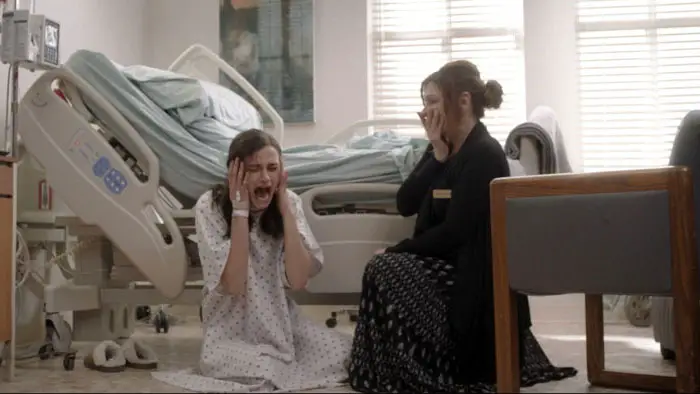
“…jogging home and is subsequently attacked. In a snap, Anne is in the hospital…”
Being an issues film, A Thousand Little Cuts uses Anne’s story to reveal the nature of abuse-based trauma where memory loss is involved. Through Monica, we learn that you can’t just bust in and interrogate a survivor and ask them to recall what happened. Trauma can be so painful that the mind may make up facts to avoid conjuring terrifying memories. So instead, what the psychiatrist attempts to do is gain the survivor’s trust and slowly walk through the event. It’s powerful, and realistically we grasp a tiny fraction of what’s going on in a survivor’s mind.
One standout moment comes at the end. It shouldn’t be a spoiler that Anne experiences a breakthrough, and when the moments happen, there are still fifteen minutes left. Writer-director Brandon’s story could have ended here, but he then walks us through the aftermath of Anne’s life. The final scene takes a dramatic turn that A) I didn’t see coming and B) took a huge dramatic twist. I have to give Brandon extra points for taking such a bold risk.
Because A Thousand Little Cuts exists to walk us through the recovery process, the drama does not go plumb the depths of despair. Instead, it maintains safe levels to serve as encouragement and a beacon of hope to those who’ve gone through similar experiences. As Anne, Liddiard gives a fantastic performance, capturing the complexities the subject matter deserves. Sirtis is just as great as a more serious and grounded Counselor Troi. If you’ve ever been in therapy, you’ll know she nails down the role while giving us a glimpse into therapists’ personal lives.
A Thousand Little Cuts is a must-see for anyone who knows someone who’s gone through trauma of any kind. It offers excellent insight into answering our questions of “what can I do?” or “what can I say?”
A Thousand Little Cuts can be screened on iTunes, Amazon (VOD), Vudu, Google Play, and Vimeo.
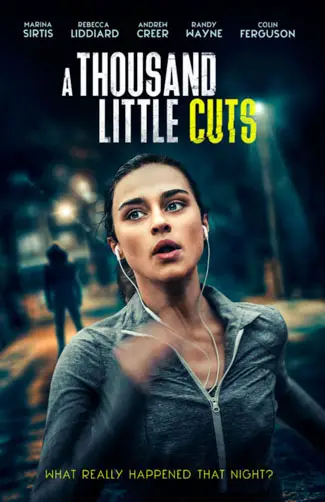
"…uses Anne's story to reveal the nature of abuse-based trauma where memory loss is involved."
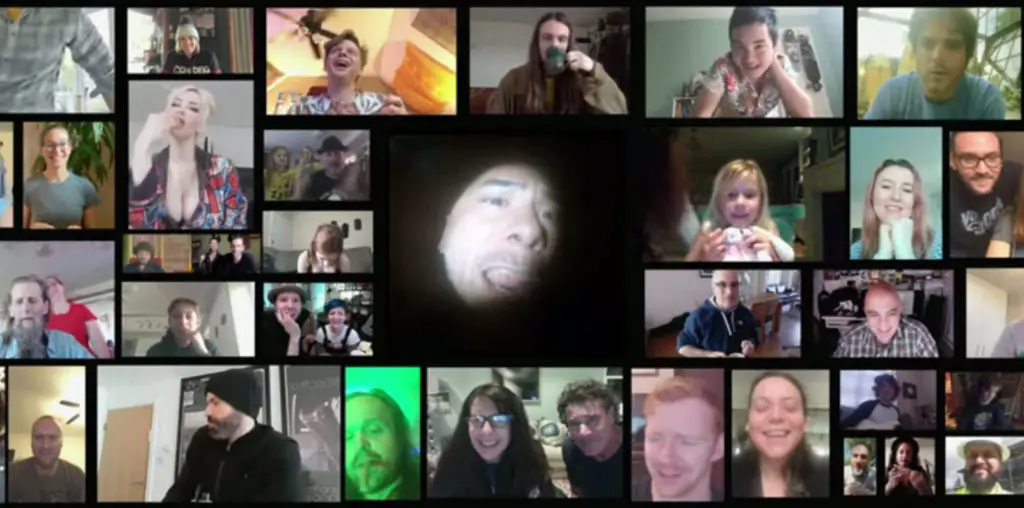
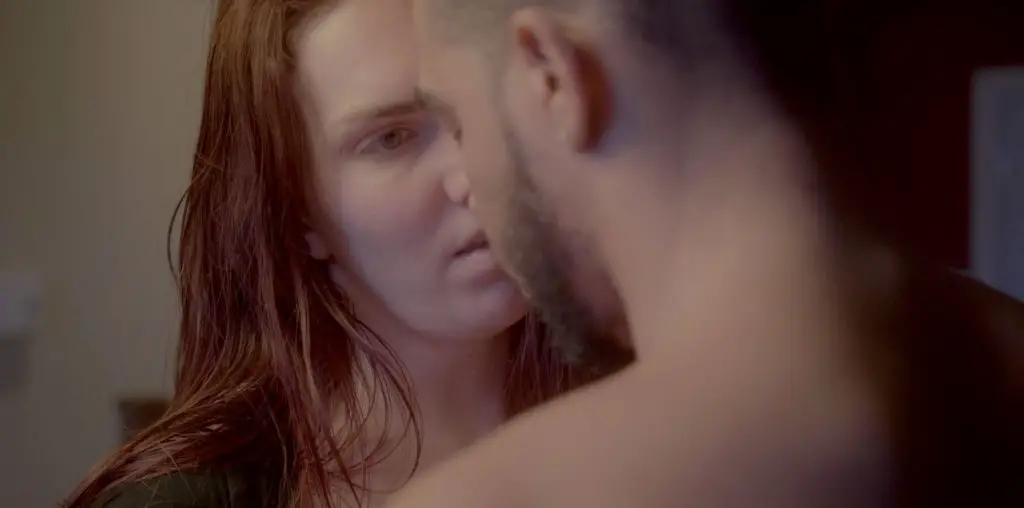
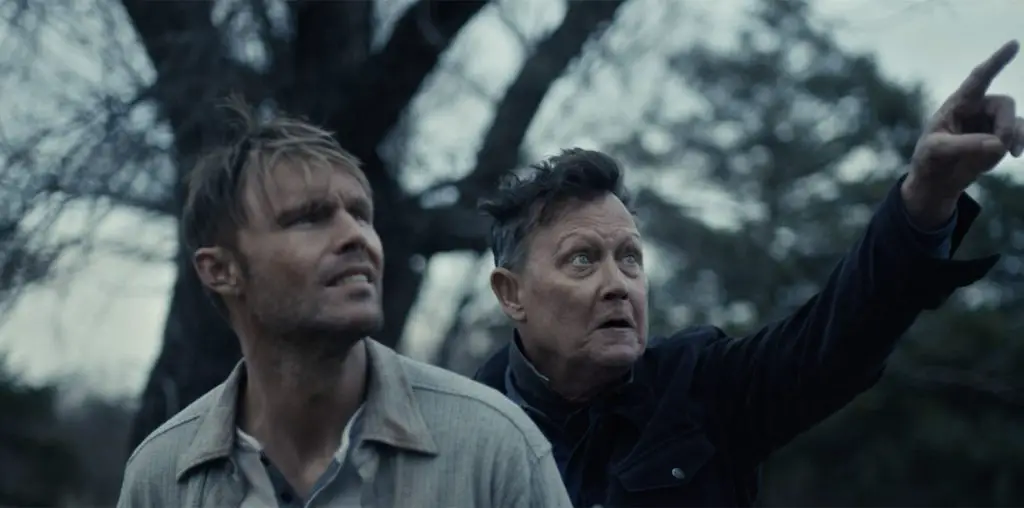
The first part of this film was so filled with youthful angst and futile trying to find satisfaction that I was ready to give it a “hated it” rating… Bor-ing! But Sirtis kept me on it…. and I ended up feeling it was such a powerful treatment of abuse… a “should be seen” by all young people to ready them for what could likely develop from dating on line… and Liddiard gave a convincing performance.
I don’t understand why she shot Tom?
She killed Tom because that’s what he deserved… for bumping her head into a door and trying to save her from an armed attacker.